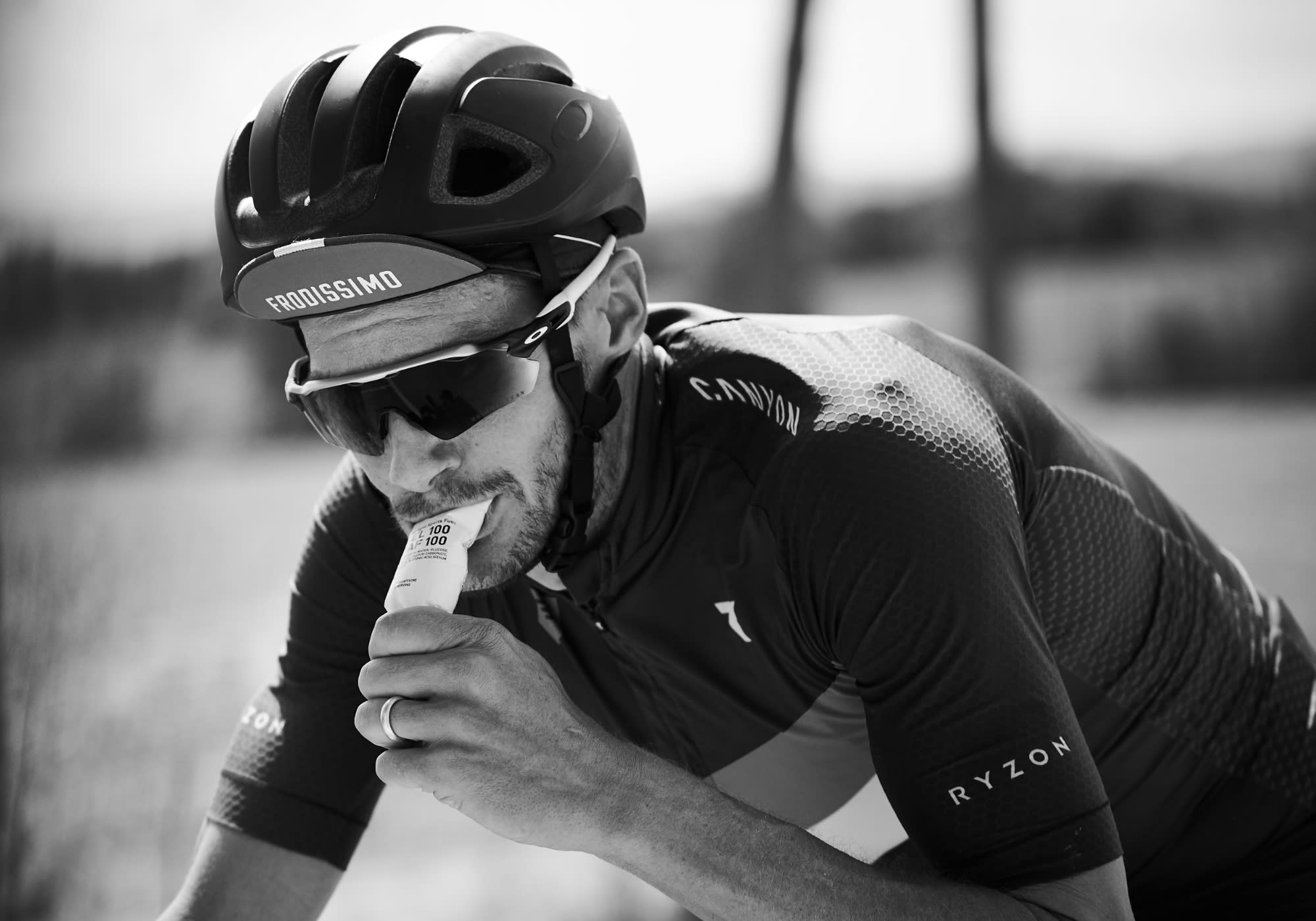
When it comes to optimizing your training, there are few things that make all the difference. Focusing on carbs per hour can elevate your workouts and improve your performance - drastically.
Focusing on carbs per hour over calories is a more effective fueling strategy
To optimize your performance, shoot for 80g of carbs per hours
The new FFF (Feed Fueling Formula) helps streamline your strategy
Training with adequate carbs supports recovery for next-day-training
Do you know that there is a straightforward rule you can follow to essentially perfect your fueling strategy during every training workout?
This past week we've had several webinars with Feed Customers and members of local clubs and teams partnered with The Feed. It helped me to realize that we needed to create a simpler system for athletes to follow on how to plan their fueling, which crossed every product type and every brand.
It's all about Carbs per Hour
Forget about calories – focus exclusively on how many carbs per hour you are consuming. You will see a massive performance improvement, especially in multi-hour workouts.
Most athletes training above zone 1 & 2 are burning around 3g of carbs per minute. Many female athletes may be burning even more. This is an average of 180g of carbs per hour you are burning.
Your goal is to consume 80g of carbs per hour
It's easier said than done. You'll be amazed at how you are constantly eating/drinking, but remember you are replenishing less than half of what you are burning.
To do this right, you have to take a minute or two before your workout and come up with a plan; this is where my new idea comes into play.
Introducing the Feed Fueling Formula (FFF) which uses a ⚡️ icon to signify how many carbs every product has.
Here is how it works:
Your goal is to consume four ⚡️⚡️⚡️⚡️ per hour
Each ⚡️ is 20g to 25g of carbs per serving
This is approximately 80g of carbs per hour.
How to will this work in practice? Let me share some examples:
Most Gels are one⚡️
Skratch hydration (1 bottle) is 1 ⚡️
Clif Bloks (3 chews) is one ⚡️
Honey Stinger Waffle is one ⚡️
1 Betty Lous Bar is ⚡️⚡️
Maurten 160 (1 bottle) is ⚡️⚡️
Maurten 320 (1 bottle) is ⚡️⚡️⚡️⚡️
So as a simple formula, you could consume each hour:
A bottle of Maurten 160 ⚡️⚡️
One Gel ⚡️
Three Clif Bloks ⚡️
The beauty of this formula is that you can now mix up gels, blocks, drinks, and bars (more diversity is always better) and apply this formula across every brand.
How do I know how many ⚡️ a product has?
We will be adding the number of ⚡️ to every product page to make it easier for you, but until that is published, you can equate ⚡️ to 20g to 25g of carbs.
What about my short workouts?
If your workout is under 45 minutes (and I will extend this up to 60 minutes) and the intensity is low to moderate, you have plenty of glycogen stores to complete your training. You can focus exclusively on high electrolyte hydration and not carbs.
What if I'm trying to be low carb/keto?
Keeping to a keto diet most of your day is still an option and a one way to lose weight quickly. If you want to perform at your best as an endurance athlete, you will need carbs during your workout and likely also during a "refeed" at dinner. Thus, this formula will still work for you during your training.
What if I'm doing an Ultra event (8+ hours)?
In this case, your average pace might be a bit lower, so you are likely burning less than 3g of carbs per minute. If so, think of dropping down to ⚡️⚡️⚡️ per hour.
Will this help with recovery?
YES! The best way to recover faster the next day is to have less carb deficit during your training. By maintaining a higher carb level during each workout, you will be amazed at how much better you feel the next day after your most challenging workouts.
Whoa, won't I get an upset stomach?
Most people can handle 80g of carbs per hour when using different types of sugar, i.e., glucose, fructose, maltodextrin, even sucrose. Most products already use a combo of sugar sources, so you don't need to worry about this.
If you are worried about this, start with Maurten's products. They have been proven to work for athletes with even the most sensitive stomachs as they bypass digestion in your stomach and are primarily absorbed in your small intestine.